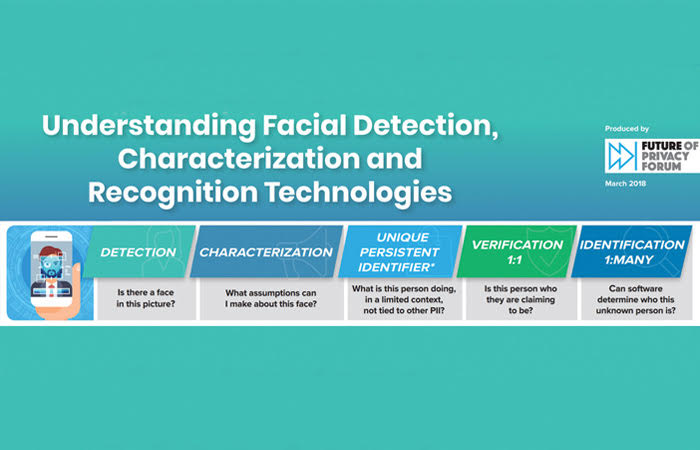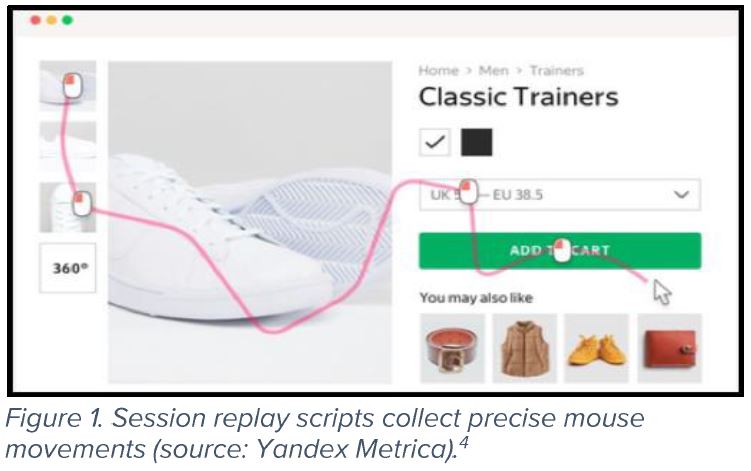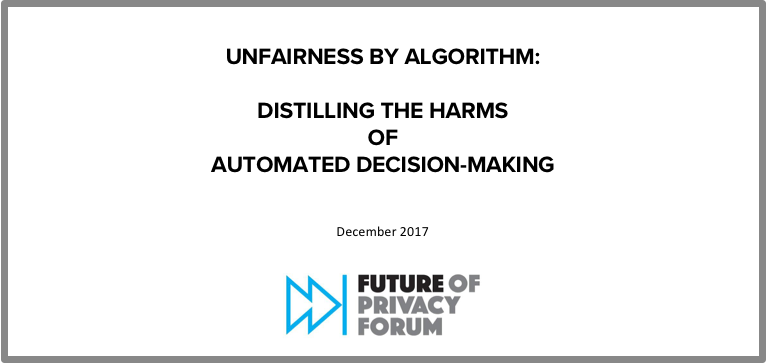Facial Detection Technologies Report & Infographic
The infographic, Understanding Facial Detection, Characterization, and Recognition Technologies, along with Privacy Principles for Facial Recognition Technology in Consumer Applications Report helps businesses and policymakers better understand and evaluate the growing use of face-based biometric technology systems when used for consumer applications. The consumer-facing applications of facial recognition technology continue to evolve, and the technology […]
Communicating about Data Privacy and Security Report
The ADRF Network is an evolving grassroots effort among researchers and organizations who are seeking to collaborate around improving access to and promoting the ethical use of administrative data in social science research. As supporters of evidence-based policymaking and research, FPF has been an integral part of the Network since its launch and has chaired the network’s Data Privacy and Security Working Group since November 2017.
Beyond Explainability: A Practical Guide to Managing Risk in Machine Learning Models Report
Beyond Explainability aims to provide a template for effectively managing this risk in practice, with the goal of providing lawyers, compliance personnel, data scientists, and engineers a framework to safely create, deploy, and maintain ML, and to enable effective communication between these distinct organizational perspectives.
Understanding Session Replay Scripts – a Guide for Privacy Professionals
Researchers at Princeton University’s Center for Information Technology Policy (CITP) have demonstrated that many websites are using third-party tools to track visitors’ individual browsing sessions. “Session replay scripts” can raise serious privacy concerns if implemented incorrectly — but with the right safeguards, can be part of a range of ordinary, useful web analytics tools. FPF has published a 3-page guide for Privacy Professionals to assist in deciding whether and how to implement session replay scripts.
City of Seattle Open Data Risk Assessment Report
FPF requested feedback from the public on its proposed Draft Open Data Risk Assessment for the City of Seattle. In 2016, the City of Seattle declared in its Open Data Policy that the city’s data would be “open by preference,” except when doing so may affect individual privacy. To ensure its Open Data program effectively protects individuals, Seattle committed to performing an annual risk assessment and tasked FPF with creating and deploying an initial privacy risk assessment methodology for open data.
Unfairness By Algorithm: Distilling the Harms of Automated Decision-Making Report & Infographic
Analysis of personal data can be used to improve services, advance research, and combat discrimination. However, such analysis can also create valid concerns about differential treatment of individuals or harmful impacts on vulnerable communities. These concerns can be amplified when automated decision-making uses sensitive data (such as race, gender, or familial status), impacts protected classes, or affects individuals’ eligibility for housing, employment, or other core services. When seeking to identify harms, it is important to appreciate the context of interactions between individuals, companies, and governments—including the benefits provided by automated decision-making frameworks, and the fallibility of human decision-making.
Understanding Corporate Data Sharing Decisions: Practices, Challenges, and Opportunities for Sharing Corporate Data with Researchers Report
Today, the Future of Privacy Forum released a new study, Understanding Corporate Data Sharing Decisions: Practices, Challenges, and Opportunities for Sharing Corporate Data with Researchers. In this report, we aim to contribute to the literature by seeking the “ground truth” from the corporate sector about the challenges they encounter when they consider making data available for academic research. We hope that the impressions and insights gained from this first look at the issue will help formulate further research questions, inform the dialogue between key stakeholders, and identify constructive next steps and areas for further action and investment.
Law Enforcement Access to Student Records: A Guide for School Administrators & Ed Tech Service Providers
Today, the Future of Privacy Forum (FPF) released “Law Enforcement Access to Student Records: A Guide for School Administrators & Ed Tech Service Providers,” written by Amelia Vance and Sarah Williamson. This guide helps to answer some of the basic questions that we have heard from key stakeholders about law enforcement access to data over the past nine months.
Kids & The Connected Home: Privacy in the Age of Connected Dolls, Talking Dinosaurs, and Battling Robots Report
This week, the Federal Trade Commission (FTC) updated its guidance on COPPA, the Children’s Online Privacy Protection Act, to clarify that the 1998 statute applies not just to websites and online service providers that collect data from children, but also to Internet of Things devices, including children’s toys.
2016 Mobile Apps Study
Kelsey Finch, FPF Policy Counsel, presented FPF’s 2016 Mobile Apps Study at the Federal Trade Commission’s annual PrivacyCon on January 12, 2017. Kelsey presented a visual representation of the App Study designed by FPF Fellow, Carolina Alonso. See the visual.










